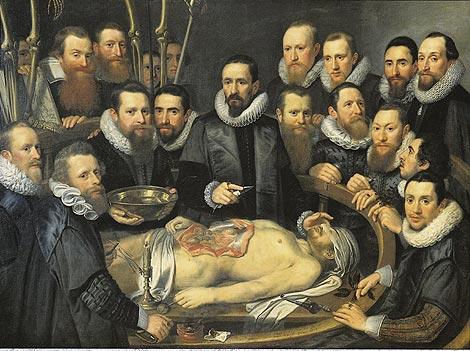For each issue of The Differential, our arts editor will write a piece in a specific poetic form that reflects the themes, material, pathologies, and/or student maturity/mindset during the block that she experienced the previous year. All of these are abstract. Some of these are very abstract! But have no fear if you are no poetry connoisseur—there will be a brief explanation of the poem and the poetic form if you so desire; just click on the “References” button below.
Post-Mortem/Post-Modern
Juliet’s mother remarked the young suitor Paris
was ‘writ with beauty’s pen’ –
a precious book
‘fair without and fair within’
his name alone,
an allusion to Priam’s
son.
You too have allusions:
your parts
composed of Latin roots for unremarkable things
and – occasionally – remarkable people.
But you are anonymous
to me
a synecdoche
I learned to read
dissecting your structures
like text:
scalpel replacing pen
probe replacing bookmark
‘anastomosis’ replacing ‘anadiplosis’
(they are the same thing anyway)
between you and me
all was too antithetical
then my eyes lit up
at the sight of your scar –
‘Me too,’ I thought.
Yet, the important details I will never know
even though
with nearly a century of life,
you’ve given me centuries of knowledge,
a heart I can hold
but no iambs to appreciate;
inspirations I shall realize
yet unable to auscultate;
nerves I will trace
without signals to propagate.
A tome I read –
A life I assimilate.
Explanation
Clinical anatomy was an incredibly surreal experience. Words cannot fully express it, so free verse is the most appropriate poetic form to use in representing this block. I always found solace and sublimity in the similarities between anatomy and literature as fields of study: both involve dissection of structures, Latin terminology, and the aim to learn about persons who exist in a separate realm. For this poem, I chose some specific literary elements that also reflect aspects of anatomy and physiology:
- Synecdoche is a literary structure in which the part represents the whole; in the process of dissection, we are always studying the parts and connecting how the whole body functions.
- Anadiplosis is the literary equivalent of anastomosis in my mind. It is a syntactical structure in which a word or phrase is repeated at the end of one sentence and at the beginning of the subsequent sentence, thereby connecting the two sentences with parallelism.
- Iambs are a type of poetic feet (stress pattern) of unstressed-stressed, thereby sounding like the lub-dub of a heart beat. Iambic rhythm is generally the natural cadence of English speech, so I’ve always found it interesting that English speech mimics heartbeats.
To further reflect the parallels between the medical arts and humanities, I’ve used a few instances of double meanings throughout the poem (The fancy term for a pun is a zeugma). See if you can interpret lines in different ways.
Aishan Shi is a fourth-year medical student and recent MBA grad from UA COM-Phoenix. She graduated in 2013 from The University of Arizona with bachelor’s degrees in biochemistry, molecular and cellular biology, and English. Her interests include medical humanities, structural biology, Shakespeare, stuff in the realm of postmodernism, and cartoons. She aims to bring all these interests together in medicine. To contact Aishan, please email her at ashi1[at]email.arizona.edu.

